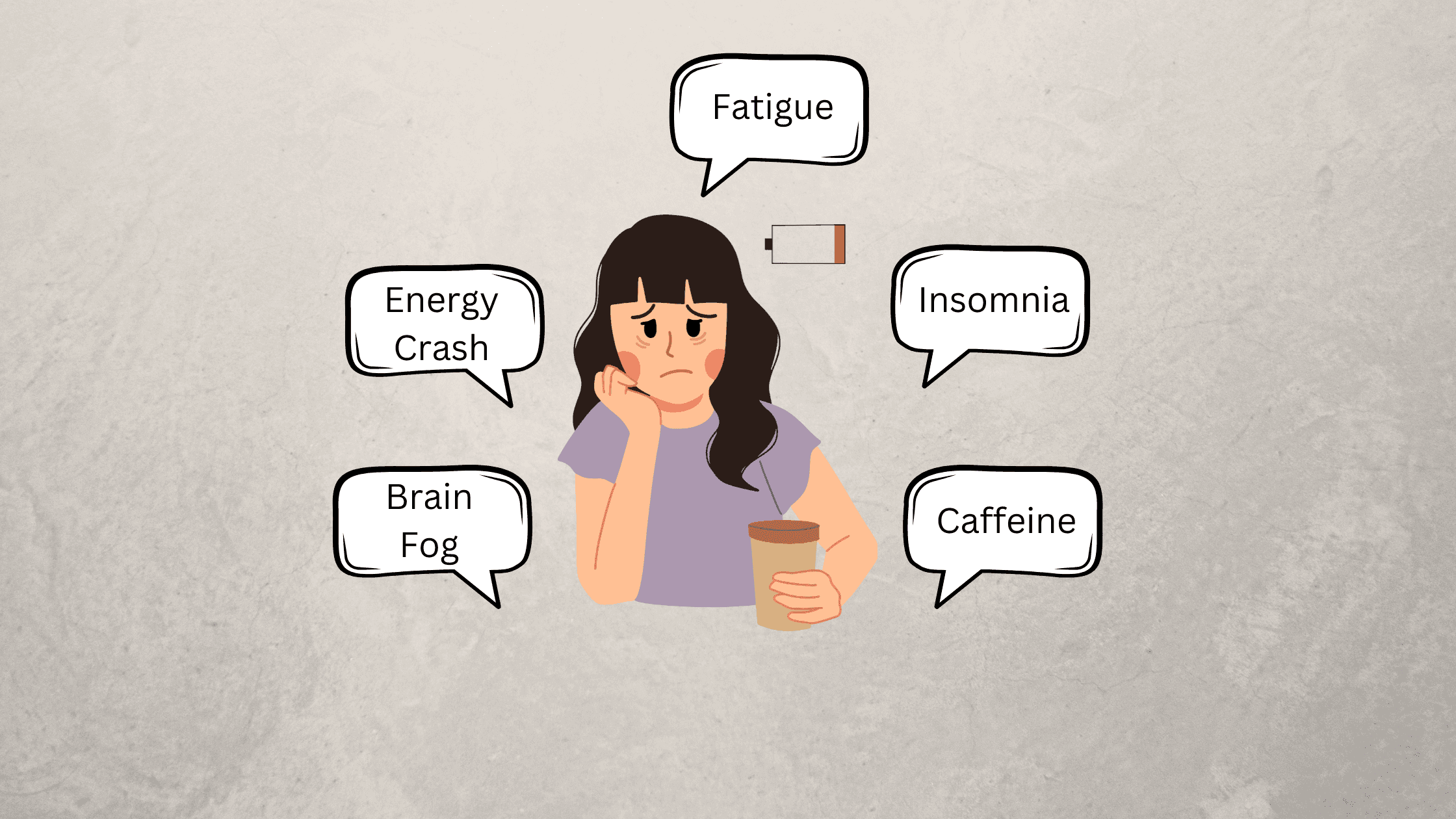

5 Stages of Grief Without Death: Coping with Loss That Isn’t Obvious
5 Stages of Grief Without Death: Coping with Loss That Isn’t Obvious
Vrinda Goel · April 22, 2025 · 3 min read
Vrinda Goel · April 22, 2025 · 3 min read
When we hear the word grief, most of us immediately associate it with the death of a loved one. But grief isn’t reserved only for funerals and farewells. It can show up quietly, and sometimes powerfully, when we lose something deeply meaningful that doesn’t involve death.
It could be the end of a relationship, a job that defined your identity, or even a version of your future that no longer exists. Grief doesn’t need death to knock on your door.
Let’s briefly revisit the 5 stages of grief, originally developed by Elisabeth Kübler-Ross (In a Nutshell):
Denial: “This can’t be happening.” A protective mechanism that gives us time to adjust.
Anger: “Why me?” This emotion may be directed inward, outward, or even at life itself.
Bargaining: “If only I had done something differently.” We try to mentally negotiate with reality.
Depression: “What’s the point?” The weight of the loss begins to sink in.
Acceptance: “This is real. And I’m learning to live with it.” Acceptance doesn’t mean it’s okay, it means we’ve made peace with the new reality.
These stages aren’t linear, and not everyone experiences all of them. They’re more like waves than steps.
Grieving What Didn't Die
Recently, I worked with a client who hadn't lost a person, but something equally life-altering: their financial security.
At 65+, this client had experienced a significant loss of money. On the surface, they appeared to be managing it all quite well. They were emotionally aware, grounded, and reflective. Everything seemed to be “in control.”
But something felt missing. Their emotional tone didn’t quite match the weight of what they had shared. It was in a quieter session, somewhere between a long pause and a subtle sigh, that the puzzle piece clicked: they were grieving.
They hadn’t lost a person, but they had lost something precious - the future they imagined for themselves. A life of ease, a certain home, the freedom of retirement, and the joy of being able to give their grandchildren more.
"Downsizing wasn’t just about fewer rooms. It was about lost dreams."
And this is grief, too.
How We Experience Non-Death Grief
Grief can show up when:
A long-term relationship ends, and with it, a shared future.
You leave a job that gave you identity and purpose.
You move away from a city that felt like home.
A dream you've nurtured for years no longer feels attainable.
A version of yourself that no longer serves you.
These are all quiet goodbyes. They don’t come with rituals or sympathy cards. But they deserve recognition.
You may deny it at first (“It’s not that bad”), get angry (“Why did this happen to me?”), bargain (“Maybe I can fix this”), sink into sadness, and eventually accept what’s gone.
Recognising grief, even in its non-death form, allows us to stop pretending we’re “fine” and start healing for real.
If You’re Going Through It...
You don’t have to minimise your pain because your grief does not fall under societieal definition of grief and loss. Your loss matters. Your grief is real.
Whether you’ve lost money, identity, stability, or the idea of what life should’ve been, know this:
Grief is not about what died. It’s about what mattered.
If you're navigating a loss that no one seems to see or name, therapy can be a space to untangle it. To make sense of the invisible ache. To give your grief the room it needs to be felt, processed, and eventually, softened.
Book a session with me if you’d like support while navigating this kind of grief. I’m here to hold space for the losses that don’t come with condolences.
When we hear the word grief, most of us immediately associate it with the death of a loved one. But grief isn’t reserved only for funerals and farewells. It can show up quietly, and sometimes powerfully, when we lose something deeply meaningful that doesn’t involve death.
It could be the end of a relationship, a job that defined your identity, or even a version of your future that no longer exists. Grief doesn’t need death to knock on your door.
Let’s briefly revisit the 5 stages of grief, originally developed by Elisabeth Kübler-Ross (In a Nutshell):
Denial: “This can’t be happening.” A protective mechanism that gives us time to adjust.
Anger: “Why me?” This emotion may be directed inward, outward, or even at life itself.
Bargaining: “If only I had done something differently.” We try to mentally negotiate with reality.
Depression: “What’s the point?” The weight of the loss begins to sink in.
Acceptance: “This is real. And I’m learning to live with it.” Acceptance doesn’t mean it’s okay, it means we’ve made peace with the new reality.
These stages aren’t linear, and not everyone experiences all of them. They’re more like waves than steps.
Grieving What Didn't Die
Recently, I worked with a client who hadn't lost a person, but something equally life-altering: their financial security.
At 65+, this client had experienced a significant loss of money. On the surface, they appeared to be managing it all quite well. They were emotionally aware, grounded, and reflective. Everything seemed to be “in control.”
But something felt missing. Their emotional tone didn’t quite match the weight of what they had shared. It was in a quieter session, somewhere between a long pause and a subtle sigh, that the puzzle piece clicked: they were grieving.
They hadn’t lost a person, but they had lost something precious - the future they imagined for themselves. A life of ease, a certain home, the freedom of retirement, and the joy of being able to give their grandchildren more.
"Downsizing wasn’t just about fewer rooms. It was about lost dreams."
And this is grief, too.
How We Experience Non-Death Grief
Grief can show up when:
A long-term relationship ends, and with it, a shared future.
You leave a job that gave you identity and purpose.
You move away from a city that felt like home.
A dream you've nurtured for years no longer feels attainable.
A version of yourself that no longer serves you.
These are all quiet goodbyes. They don’t come with rituals or sympathy cards. But they deserve recognition.
You may deny it at first (“It’s not that bad”), get angry (“Why did this happen to me?”), bargain (“Maybe I can fix this”), sink into sadness, and eventually accept what’s gone.
Recognising grief, even in its non-death form, allows us to stop pretending we’re “fine” and start healing for real.
If You’re Going Through It...
You don’t have to minimise your pain because your grief does not fall under societieal definition of grief and loss. Your loss matters. Your grief is real.
Whether you’ve lost money, identity, stability, or the idea of what life should’ve been, know this:
Grief is not about what died. It’s about what mattered.
If you're navigating a loss that no one seems to see or name, therapy can be a space to untangle it. To make sense of the invisible ache. To give your grief the room it needs to be felt, processed, and eventually, softened.
Book a session with me if you’d like support while navigating this kind of grief. I’m here to hold space for the losses that don’t come with condolences.
When we hear the word grief, most of us immediately associate it with the death of a loved one. But grief isn’t reserved only for funerals and farewells. It can show up quietly, and sometimes powerfully, when we lose something deeply meaningful that doesn’t involve death.
It could be the end of a relationship, a job that defined your identity, or even a version of your future that no longer exists. Grief doesn’t need death to knock on your door.
Let’s briefly revisit the 5 stages of grief, originally developed by Elisabeth Kübler-Ross (In a Nutshell):
Denial: “This can’t be happening.” A protective mechanism that gives us time to adjust.
Anger: “Why me?” This emotion may be directed inward, outward, or even at life itself.
Bargaining: “If only I had done something differently.” We try to mentally negotiate with reality.
Depression: “What’s the point?” The weight of the loss begins to sink in.
Acceptance: “This is real. And I’m learning to live with it.” Acceptance doesn’t mean it’s okay, it means we’ve made peace with the new reality.
These stages aren’t linear, and not everyone experiences all of them. They’re more like waves than steps.
Grieving What Didn't Die
Recently, I worked with a client who hadn't lost a person, but something equally life-altering: their financial security.
At 65+, this client had experienced a significant loss of money. On the surface, they appeared to be managing it all quite well. They were emotionally aware, grounded, and reflective. Everything seemed to be “in control.”
But something felt missing. Their emotional tone didn’t quite match the weight of what they had shared. It was in a quieter session, somewhere between a long pause and a subtle sigh, that the puzzle piece clicked: they were grieving.
They hadn’t lost a person, but they had lost something precious - the future they imagined for themselves. A life of ease, a certain home, the freedom of retirement, and the joy of being able to give their grandchildren more.
"Downsizing wasn’t just about fewer rooms. It was about lost dreams."
And this is grief, too.
How We Experience Non-Death Grief
Grief can show up when:
A long-term relationship ends, and with it, a shared future.
You leave a job that gave you identity and purpose.
You move away from a city that felt like home.
A dream you've nurtured for years no longer feels attainable.
A version of yourself that no longer serves you.
These are all quiet goodbyes. They don’t come with rituals or sympathy cards. But they deserve recognition.
You may deny it at first (“It’s not that bad”), get angry (“Why did this happen to me?”), bargain (“Maybe I can fix this”), sink into sadness, and eventually accept what’s gone.
Recognising grief, even in its non-death form, allows us to stop pretending we’re “fine” and start healing for real.
If You’re Going Through It...
You don’t have to minimise your pain because your grief does not fall under societieal definition of grief and loss. Your loss matters. Your grief is real.
Whether you’ve lost money, identity, stability, or the idea of what life should’ve been, know this:
Grief is not about what died. It’s about what mattered.
If you're navigating a loss that no one seems to see or name, therapy can be a space to untangle it. To make sense of the invisible ache. To give your grief the room it needs to be felt, processed, and eventually, softened.
Book a session with me if you’d like support while navigating this kind of grief. I’m here to hold space for the losses that don’t come with condolences.
Copyright Healing Horizon 2024
Copyright Healing Horizon 2024





